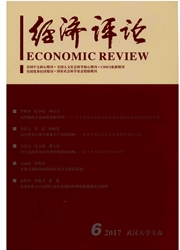

 中文摘要:
中文摘要:
本文利用2000—2009年广东省城镇住户调查数据,详细度量了城镇家庭各种消费不平等的大小,采用出生组分解和回归分解方法,探讨了消费不平等和收入不平等、总消费不平等和服务消费不平等的形成机制。研究发现,2000—2009年,收入基尼系数维持在0.326~0.366之间,而消费基尼系数由0.320增长至0.384,2005年开始消费不平等高于收入不平等。除食物消费不平等外,文化娱乐、汽车和住房消费不平等显著大于总消费不平等和收入不平等。更年轻的出生组(1970年代和1980年代)存在更高的收入不平等和消费不平等。可支配收入对总消费差距和文化娱乐消费差距的贡献度均达到了40%以上。降低收入不平等、提高人力资本、发展服务业、完善消费刺激政策,对降低家庭消费不平等和扩大内需具有重要作用。
 英文摘要:
英文摘要:
Using the data from 2000 -2009 Urban Household Survey in Guangdong Province,this paper measures different kinds of consumption inequality. Based on methods of birth cohort decomposition and regression decomposition, we compare the mechanism of consumption inequality with that of income inequality and entertainment consumption inequality respectively. The study finds that from 2000 to 2009,the Gini coefficient of income increases from 0. 326 to 0. 366, and the Gini coefficient of consumption increases from 0. 320 to 0.38g. The consumption inequality of entertainment, car and house is significantly greater than the total consumption inequality and income inequality. Younger birth cohorts( 1970s and 1980s) have greater income inequality and greater consumption inequality than older birth cohorts. The disposable income of urban household has more than 40% contribution to total consumption inequality and entertainment consumption inequality. Reducing income inequality, improving human capital, developing the services industry and improving stimulus policies on consumption play important roles on reducing household consumption inequality and expand domestic demand.
 同期刊论文项目
同期刊论文项目
 同项目期刊论文
同项目期刊论文
 期刊信息
期刊信息
